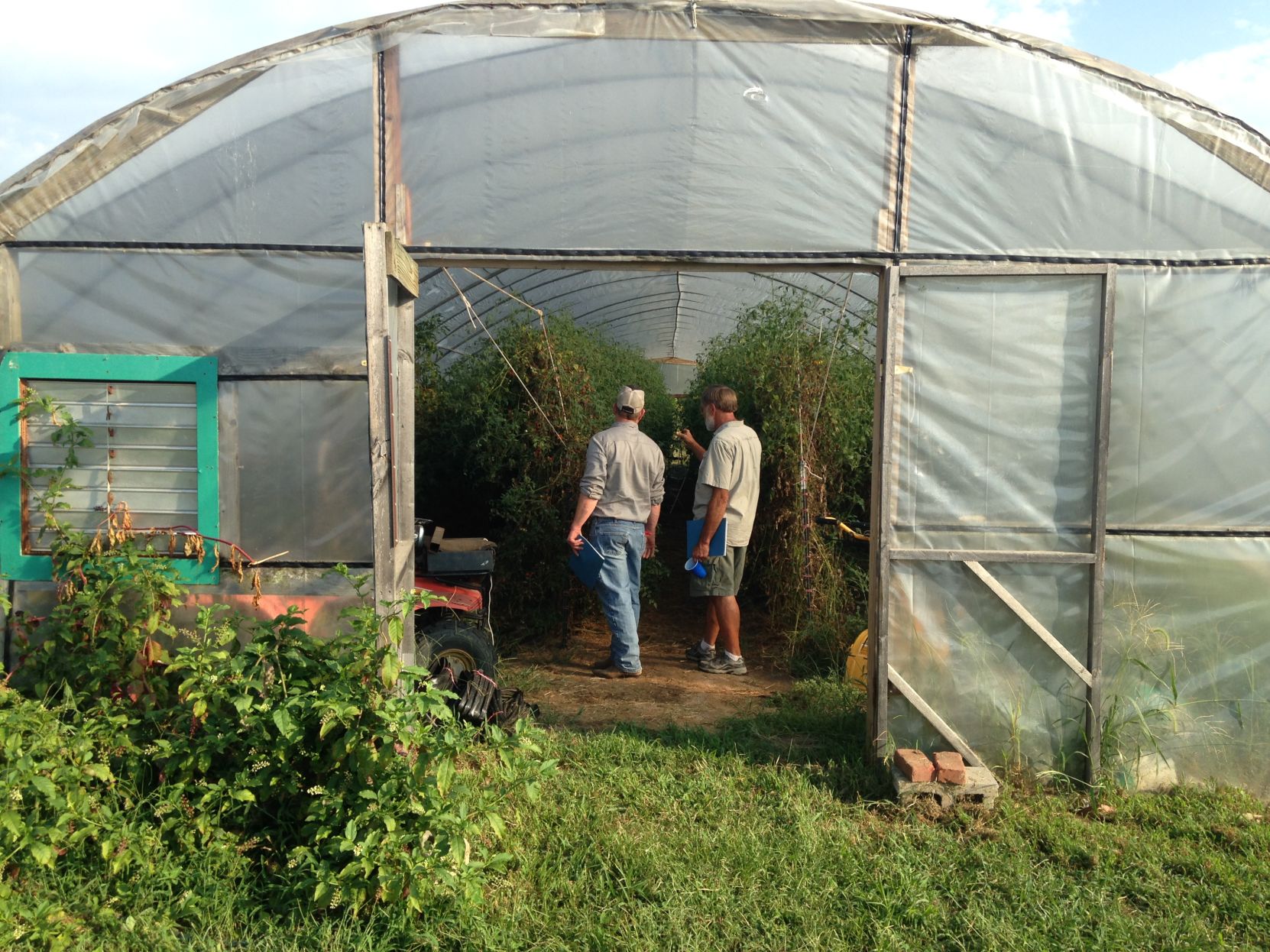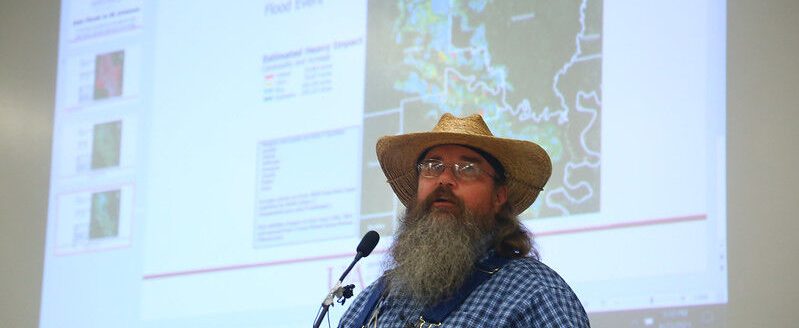Registration is open for the Kansas Rural Center’s Specialty Crop Workshop in Erie, Kansas. The workshop will be held March 31 from 8:30 a.m. to 5 p.m., at Courthouse Meeting Room, 100 S. Main Street, Erie. There is a $15 registration fee, which will cover the cost of lunch and materials.
For more information and to register for the workshops, visit https://kansasruralcenter.org/krcs-2018-specialty-crop-workshops/.
Register by March 27 so that we can get an accurate lunch count.
The workshop will provide information and education necessary for beginning specialty crop growers to establish a successful specialty crop enterprise in Kansas, focusing on conservation, production and marketing practices for specialty crop growers, and will provide an excellent opportunity for beginning growers to connect with and learn from experienced growers.
The workshop will provide information on the state of specialty crops in Kansas, with David Coltrain answering the question, "What’s Special About Specialty Crops?” Coltrain will look at current production, historical production, and potential production of specialty crops in Kansas. Economic considerations and enterprise budgets for growing specialty crops will be covered.
Coltrain has recently returned to his home roots and is gearing up to grow and market vegetables and fruits in Southeast Kansas. During his career, Coltrain worked at Seward County Community College as an Agriculture Instructor and established a specialty crops demonstration area consisting of 4 acres of conventional garden, 5,000 square feet of high tunnels and 3,600 square feet of greenhouses. He was an Extension Agent for Kansas State Research and Extension for 10 years and worked in KSU’s Ag Econ Department in business development. He began his career as a seedstock swine producer and vegetable grower in Southeast Kansas. His education from KSU includes a BS in Horticulture and an MS in Agriculture Economics.
Information on accessing the many resources that are available to help specialty crop growers be successful in their operations will be provided. Organizations that offer resources to specialty crop growers include: Kansas Department of Agriculture; K-State Research and Extension; USDA groups, including SARE, NRCS, RMA, FSA; and farm credit lenders. A representative from one of the groups will be on hand to talk about the resources and to answer questions. This session will also provide a number of websites with important information for growers.
Calvin Parker will talk about growing vegetables for farmers markets. Parker owns and operates a small farm which produces specialty produce. Parker was a cement chemist and turned to farming after retiring. He and his wife started by determining what crops their farm was best suited for on a small scale and built up from there. Parker will demonstrate techniques that have worked for him along with some that have not been as successful.
Parker utilizes techniques that conserve water and fertilizer and lead to earlier production, which helps mitigate heat, insect and moisture problems. Parker grows tomatoes, new potatoes, onions, cabbage, peppers, cucumbers cantaloupes, radishes, lettuce, green beans, sweet potatoes, and other vegetables, and sells them at the farm and at the farmers markets in Allen County. The Parkers also donate produce to area food pantries.
Mike Schoenecker, Chanute, has grown vegetables all his life and has been selling at farmers markets for nearly 30 years. Currently, he markets at the Kansas Grown Farmers Market in Wichita. He grows a variety of vegetables including cool season crops like lettuce, cabbage, broccoli, cauliflower, and peas. Warm season crops grown include tomatoes, cucumbers, green beans, melons, and squash. Schoenecker will discuss his growing techniques, which include drip irrigation and straw mulch, and will emphasize the importance of composting and building up soil health.
Cary Rivard, Extension specialist and director of the Olathe K-State Research and Extension Center, will discuss the importance of post-harvest coolers in specialty crop production. Rivard is responsible for conducting applied research and extension activities in the area of fruit and vegetable production. His current research investigates the use of grafted tomatoes for organic and conventional production. He also conducts research in high tunnels and is responsible for maintaining the hightunnels.org website.
The workshop will feature information about the robust community of Amish specialty crop growers that reside in Southeast Kansas, and their unique marketing model. Labette County is home to an Amish community that has become an important part of specialty crop production in Kansas. Amish specialty crop growers in Southeast Kansas approached auctioneer, John Nichols, about starting a Produce Auction, which has now been running for about five years. Every week from April through October, specialty crops are sold to many different types of end users ranging from individuals through supermarket chains.
Tammy Klenklen owns and operates Oz Country Mercantile & Produce in Erie, Kansas. Klenklen is a former FedEx truck driver, who grew up outside of St. Louis with no background in farming. Her operation grew out of a flower gardening hobby, and really blossomed after she attended a meeting about starting a farmer’s market in the Erie area. Klenklen received her first EQIP Grant in 2015 and her second in 2017. She is entering her third season of farming full time. She and her husband now have three high tunnels and have a total of 1/2 acre in diversified vegetable production. She and her husband sell at three to four farmers markets weekly and from their farm store at home. Along with vegetables, they sell jellies, raw honey, homemade lip balms, herbs and dried pepper powders. A tour of Klenklen’s farm will close out the day.
For more detailed information on each workshop and to register, visit https://kansasruralcenter.org/krcs-2018-specialty-crop-workshops/.
The workshop is part of a five-workshop series that the Kansas Rural Center is hosting this March, as part of their “Linking Experienced and Beginning Kansas Specialty Crop Farmers to Share Information for Establishing Successful Specialty Crop Enterprises Project,” which is funded by the Kansas Department of Agriculture through the USDA Specialty Crop Block Grant program.
To learn more about the workshops, contact David Coltrain at 620-330-3951 or [email protected], or email [email protected]. For questions about the project as a whole, please contact Mary Fund at [email protected] or 866-579-5469.
The mission of KRC, a non-profit research, education and advocacy organization founded in 1979, is to promote the long-term health of the land and its people through research, education and advocacy that advance an economically viable, ecologically sound, and socially just food and farming system. For more information, visit www.kansasruralcenter.org.




